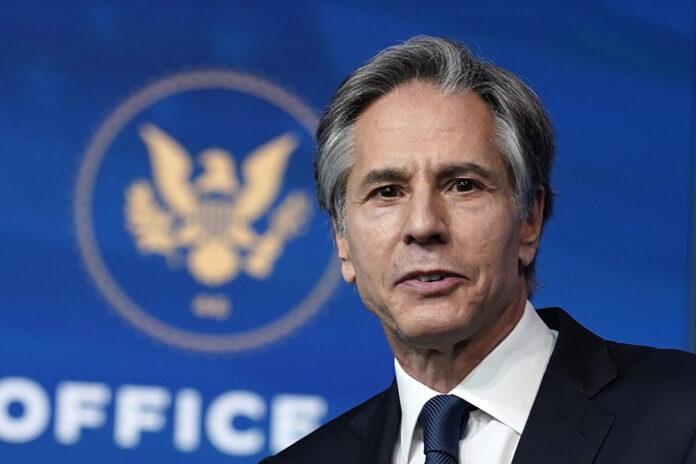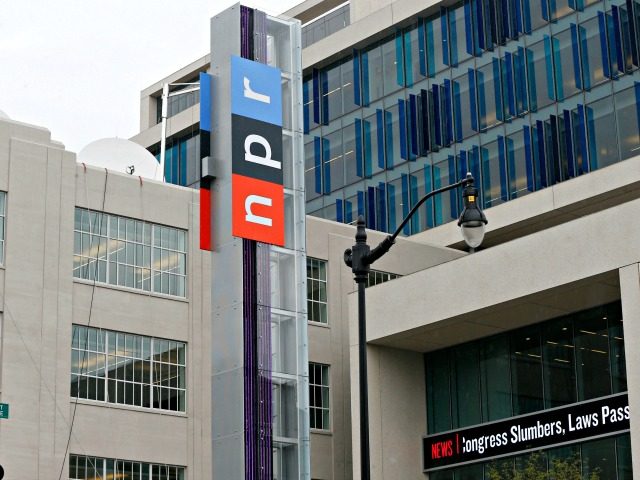Qatar & Kuwait Refuse to Allow the US to Use Their Bases if Iran Attacks Israel
Edited by: Fern Sidman
On Friday, Al Jazeera reported that Qatar and Kuwait have informed the United States that they cannot use the bases on their territories against Iran in the event of an attack on Israel. This move significantly reduces US capabilities in the region.
According to a report that appeared on Friday in the Wall Street Journal, the United States has taken swift action to protect Israel and American forces in the region amidst escalating tensions, rushing warships into position to deter potential threats from Iran. The deployment aims to preempt any direct attack on Israel, with concerns mounting over the possibility of imminent aggression.
The urgency of the situation was underscored by a warning from a reliable source regarding the timing and location of a potential Iranian attack, as was reported by the WSJ.
Army General Erik Kurilla, head of U.S. Central Command, engaged in discussions about the looming threat with Israeli Defense Minister Yoav Gallant during a visit on Thursday to Israel. Gallant reaffirmed Israel’s readiness to defend itself, both on the ground and in the air, in collaboration with its allies. As per the information provided in the WSJ report, Israel’s Defense Ministry quoted Gallant stating, “We are prepared to defend ourselves on the ground and in the air, in close cooperation with our partners, and we will know how to respond.”
As part of the U.S. response, two destroyers have been repositioned, with one already present in the region and another redirected to bolster defense capabilities. Indicated in the WSJ report was that these vessels are equipped with advanced Aegis missile-defense systems, enhancing their capacity to intercept and neutralize potential threats.
The deployment of warships calls attention to the gravity of the situation and the commitment of the United States to safeguarding its allies and interests in the Middle East. The region has been a hotspot of geopolitical tensions, with longstanding rivalries and proxy conflicts heightening the risk of military escalation.
While efforts are underway to prevent a wider conflict, the situation remains fluid, with the potential for rapid developments, according to the report in the WSJ. The deployment of warships represents a proactive measure aimed at deterring Iranian aggression and preserving stability in the region.
As for Qatar’s refusal to allow the US to utilize their bases in the event of an Iranian attack on Israel, the Gulf nation continues to play a double game with the United States. On the one hand, Qatar has served as a safe harbor for Hamas leaders who live in luxury hotels in Doha, and on the other hand Qatar claims that they are allied with US interests.
According to a December 2023 report by the Foundation for the Defense of Democracies, a Washington, DC-based nonpartisan research institute focusing on national security and foreign policy, Qatar has enabled the terrorist organization Hamas politically and financially for decades. However, the tiny Gulf Arab state has successfully positioned itself as the lead negotiator in the Hamas-Israel war despite its lack of neutrality and ongoing support for terrorism. In fact, Doha hosts key members of Hamas’s senior leadership and has given an estimated $1.8 billion to Gaza’s Hamas-run government. As a designated major non-NATO ally of the United States, Qatar’s ongoing support for Hamas raises overdue questions as to whether Washington should finally press the Gulf country to close Hamas offices, expel Hamas officials, and turn off the financial spigot.
The FDD report also detailed Qatar’s role in serving as a major financier of Hamas terrorism. The report stated that the former Emir of Qatar was the first world leader to visit Gaza after Hamas seized the territory by force in 2007. Sheikh Hamad, father of the current emir, visited the coastal enclave and pledged $400 million in support. Doha pledged $360 million of annual support to the enclave in January 2021, in part to subsidize government salaries. About a third of Qatari support is in the form of fuel that Hamas authorities sell for cash. Hamas also collects kickbacks from salaries and other aid flowing into Gaza.
Qatar’s foreign ministry released a statement on October 7th holding “Israel alone responsible” for Hamas’s bloody rampage, as was detailed in the FDD report. The ministry ignored Hamas’s war crimes and accused Israel of violating international law. After failing to condemn the 10/7 attack, Sheikh Tamim bin Hamad al-Thani, the Qatari emir, said on October 24 that “it is untenable for Israel to be given an unconditional green light and free license to kill.”
Ismail Haniyeh, the chief of Hamas’s political bureau, resides in Qatar, as do Khalil al-Hayya, head of Hamas’s communications office, and Khaled Mashal, Hamas’s former political chief and current head of the group’s diaspora office. The FDD report said that on October 13, 2023, Mashal called for a global “Day of Jihad,” encouraging the Muslim world to “head to the squares and streets” in support of the Palestinian cause. In Doha, Hamas leaders live in five-star hotels; Haniyeh and Mashal are reportedly worth over $4 billion each.
Moreover, the FDD report explained that Hamas opened a political office in Doha in 2012. Haniyeh currently serves as chief of the bureau. Sheikh Meshal bin Hamad al-Thani, Qatar’s ambassador to the United States, claims that Hamas set up its Doha office following “a request from Washington to establish indirect lines of communication with Hamas.” An Obama White House official said there was no request from Washington, but the administration did not oppose the move either. A spokesperson for the Qatari Foreign Ministry said on November 5 that Doha has “no reason to close” the office if it can facilitate diplomacy. On Capitol Hill, Doha has tried to block U.S. legislation recognizing the Gulf country as a Hamas financier.
The abundantly tendentious and agenda driven news outlet Al Jazeera is owned by the Qatari government and effectively functions as a media mouthpiece of the state. The network regularly lionizes the violent activities of Hamas, with particularly vitriolic coverage of the conflict during clashes with Israel, according to the FDD report. For years, Yusuf Qaradawi, the Muslim Brotherhood cleric who endorsed the tactic of suicide bombings, hosted a program on the channel. After the October 7 attack, the network broadcast Hamas military chief Mohammad Deif’s call to arms. Al Jazeera also aired incendiary statements from Ismail Haniyeh and his deputy, Saleh al-Arouri. Haniyeh appeared on Al Jazeera praising Hamas’s “great triumph” and calling on “the sons of this entire nation, in their various locations, to join this battle in any way they can.”
Further information provided in the FDD report indicated that following Israel’s unilateral withdrawal from the Gaza Strip in 2005, Hamas prevailed in the Palestinian elections in 2006. After a one-year stand-off with the ruling Fatah faction, Hamas fought a bloody civil war, executing some of its Fatah rivals by shoving them off buildings. Qatar sided with Hamas and endorsed its takeover of Gaza in 2007. It has provided political and financial assistance to the Islamist group in the years since while undermining the internationally recognized Palestinian Authority, which runs the West Bank.
The FDD report also pointed out that in November 2023, Qatari Prime Minister Mohammed bin Abdelrahman al-Thani said, “We have built relations with Hamas in order to maintain peace and stability in the region.” Yet contrary to the belief that Qatar could moderate Hamas and help stabilize the region, Doha’s support for Hamas has facilitated relentless violence. Under Qatari patronage, Hamas has fought five separate wars against Israel (2008, 2012, 2014, 2021, and 2023).
In June 2017, Saudi Arabia, the United Arab Emirates (UAE), Bahrain, and Egypt severed ties with Qatar and imposed a blockade on the Gulf nation. According to the information contained in the FDD report, Saudi Arabia said it cut ties to “protect national security from the dangers of terrorism and extremism,” while the UAE noted Qatar’s “ongoing policies that rattle the security and sovereignty of the region.” Both countries accused Doha of backing the Muslim Brotherhood, the Islamist group that gave rise to Hamas. Riyadh and Abu Dhabi also demanded that Qatar sever all ties to terrorist organizations, stop funding those organizations, curtail its close ties to Tehran, terminate the Turkish military presence in Qatar, and shut down Al Jazeera and other incendiary news outlets funded by Doha.
Contradictory as it may sound, despite its support for terrorism, Qatar has been named by the United States as a major non-NATO ally, with the country serving as a strategic hub for U.S. military operations in the Persian Gulf region, as per the FDD report. Located 18 miles southwest of Doha, Al-Udeid Air Force Base hosts an estimated 10,000 U.S. troops as well as CENTCOM Forward Headquarters, from which the U.S. launches air operations against Islamic State in Iraq and Syria. In addition, the United Kingdom’s Royal Air Force and other foreign forces are stationed at the base built by Qatar following the 1991 Operation Desert Storm.
On Wednesday, the Jewish Voice reported that Senators Ted Budd (R-NC), Joni Ernst (R-IA), and Rick Scott (R-FL) have initiated legislation that targets Qatar’s designation as a major non-NATO ally of the United States. According to a report on the JewishInsider.com web site, the legislative push emerges from concerns over Qatar’s financial connections to terrorist groups, specifically Hamas, and its inaction in using its influence to secure the release of the remaining 133 Israeli hostages being held in captivity in Gaza by the Iranian backed terror group.
The senators’ legislation seeks to leverage Qatar’s status as a major non-NATO ally, a designation that brings various military and economic benefits, as a bargaining chip to force the Gulf nation to sever its ties with Hamas and take a more active stance against global terrorism. As was reported on the JewishInsider.com web site, the proposed law mandates a 90-day period within which the State Department must assess the U.S.-Qatar relationship, determining whether it aligns with U.S. national interests and whether Qatar has used its influence over Hamas effectively.
The legislation outlines specific criteria that Qatar must meet to retain its status. These include demonstrating an active effort to use its leverage over Hamas, ceasing support (both direct and indirect) to terrorist organizations, and either expelling or extraditing members of Hamas, as per the information provided in the JewishInsider.com report. Failure to meet these criteria would result in the immediate termination of Qatar’s status as a major non-NATO ally, a condition that would remain until the Gulf nation complies with all the stipulated requirements.
A point of contention highlighted in the bill is Qatar’s undermining of negotiations for a hostage deal. JewishInsider.com also reported that the senators have accused Qatar of making public calls for a cease-fire that does not condition on the release of the hostages and of claiming a lack of leverage over Hamas, actions that the U.S. lawmakers see as contradictory and harmful to efforts in securing the release of U.S. nationals held hostage.
This legislation represents a significant escalation in the scrutiny of Qatar’s foreign relations, particularly concerning its financial and material support for Hamas.
The discussion of revoking Qatar’s status as a major non-NATO ally (MNNA) by U.S. lawmakers underscores the dynamic and conditional nature of international relations, particularly in the context of geopolitical and security interests. The MNNA status is a significant designation by the United States, providing various military and financial advantages, such as cooperative defense research, shared military training, and priority delivery of defense material, according to the information contained in the JewishInsider.com report. However, this status is not just an honor but also a statement of trust and mutual interest, implying that the recipient country aligns with the U.S. on crucial international policies, including counterterrorism.
The controversy around Qatar’s MNNA status primarily revolves around its interactions with Hamas, an organization designated as a terrorist group by the United States. The U.S. perceives Qatar’s actions, or lack thereof, against Hamas as not just a passive stance but as support for the group, which is inconsistent with the responsibilities and expectations attached to being an MNNA.
Representative Budd’s proposal to reconsider Qatar’s MNNA status is a manifestation of broader concerns among some U.S. lawmakers about Qatar’s international conduct, especially regarding its relationship with Hamas.
In a speech on the Senate floor, Rep. Budd stated, “Seeking the release of the hostages demands strength and moral clarity. We demand it of our own leaders, and we should require it from our major allies. He continued: “The State of Qatar hosts Hamas’ leaders in their capital of Doha. Now initially, Qatari officials claimed they are exercising leverage on Hamas. Then they publicly stated thereafter that they have no leverage. And now, they’re promoting a ceasefire regardless of the release of the hostages. The truth is that Qatar does have significant leverage over Hamas. They have the ability to expel these terrorists if they don’t release the hostages or at least engage in reasonable negotiations.”
He added that, “The truth is that Hamas is not interested in releasing the hostages, and Qatar seems equally uninterested in forcing them to do so. It is time that we hold nations like Qatar accountable for their dithering and their stalling. I do not introduce this bill lightly. It is not where I started with this relationship, but it is a reflection of where we are today as a result of the repeated warnings that Members of Congress have given to Qatar about the liability of continuing to host Hamas.”
Budd emphasized that, “The time for talking is over, and the time for action is now. If we don’t see action, then Qatar must face consequences. At the end of the day, this bill represents another step towards securing the freedom of our fellow Americans.”
His statement reflects a serious consideration of the bilateral relationship dynamics, emphasizing that such a privileged status requires continuous evaluation and must be merited through actions that align with U.S. interests and security imperatives.















